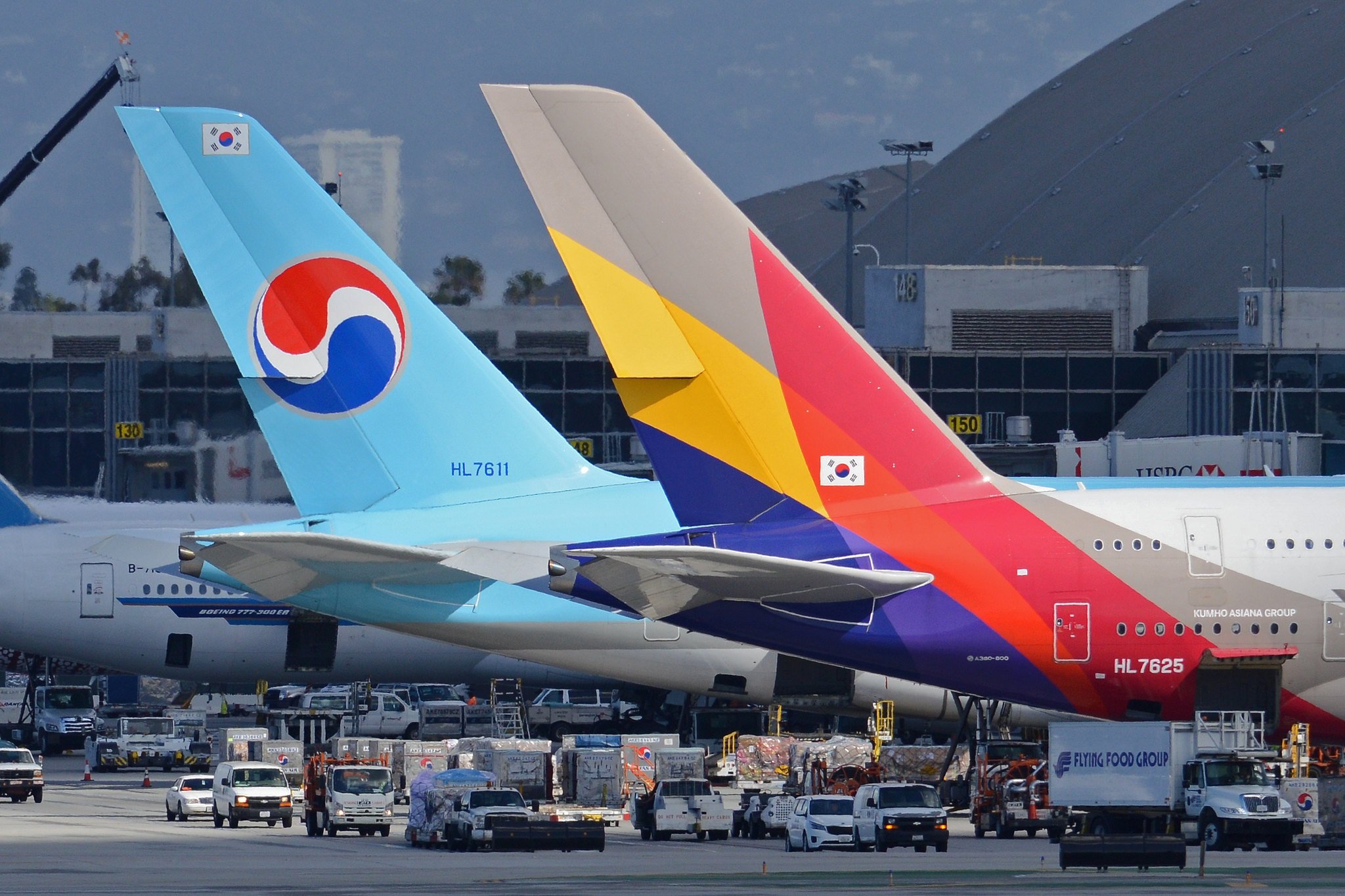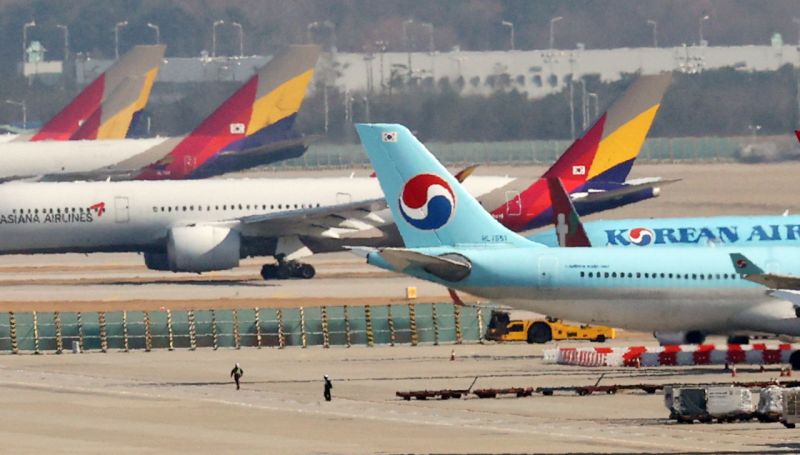


Ten months ago , Korea Fair Trade Commission (KFTC) gave nod to Korean Air Lines’ acquisition of rival Asiana Airlines - the first-ever merger of full service carriers in South Korea.
But then onwards , the process has been tough for Korean air amid concerns from U.K. and other big markets . However , South Korea's flagship carrier Korean Air said to have received the Chinese government's approval for integrating the domestic rival Asiana Airlines into its fold.
Approval has come with conditions ,China's antitrust regulator has raised an issue with the four air routes between Korea and China being monopolized by a single carrier , to that objection , Korean Air has promised to take the steps necessary to alleviate such concerns.
Now , the next course of action shall be — "Obtaining an NOC from Europe" , as the he Seoul-based company said , it was waiting for the clearance from the antitrust regulators of the European Union, United States, Britain and Japan and , while United Kingdom might provide the NOC soon.
Last month , Britain's antitrust regulator had expressed concerns over its planned integration with rival Asiana Airlines Inc., citing monopoly worries on routes between the two countries.
In a statement, Britain's Competition and Markets Authority (CMA) had mentioned , the buyout of Asiana by Korean Air could lead to higher prices for passengers flying between London and Seoul, as well as impacting air cargo services.
"Korean Air and Asiana Airlines are the two main players on the London to Seoul route and the deal risks UK customers and businesses paying over the odds or receiving a lower quality of service," Colin Raftery, senior mergers director at the CMA, said in the statement that time.
Korean Air is optimistic about the new development,
"We expect China's decision to positively affect the decision of policymakers in the U.S., the EU and Japan with regard to the merger," Korean Air said in a statement.
The nation's two full-service carriers account for a combined 40 percent of passenger and cargo slots at Incheon International Airport, South Korea's main gateway.

Two years back , Pandemic was battering Aviation and airlines , specifically the smaller ones without the liquidity cushion. In November 2020, Korean Air had decided to acquire financially troubled Asiana Airlines by signing a deal of worth $1.5 billion.
Now Korean Air is trying to complete the takeover process by 2023, which would result in making the merged outfit one of the Top 10 airlines in the world in terms of fleet size.
"Through the Asiana acquisition, I think Korean Air will be able to use to its advantage the increased routes and schedules, enabling it to better compete against global rivals," this is the view of Eugine Investment analyst Yang Seung-yoon.
Prior to China approval , the company had received approval from nine countries -- Australia, South Korea, Singapore, Vietnam, Thailand, Turkey, Taiwan, Malaysia and the Philippines -- Now the carrier is awaiting the go-ahead from four more countries, as mentioned earlier.
